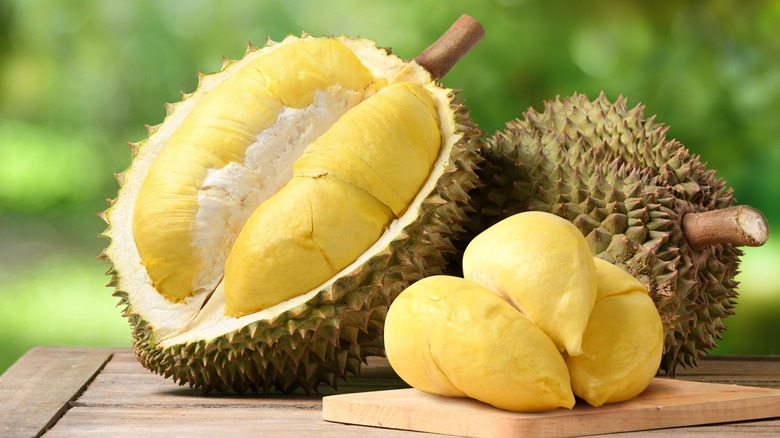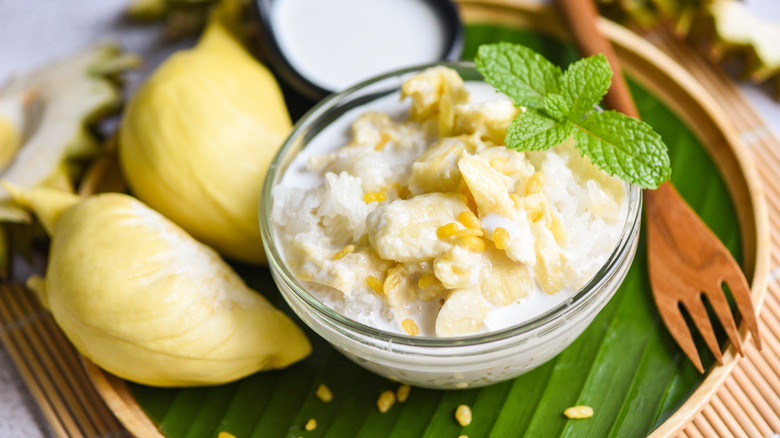The Polarizing Flavors Of Durian And How It Relates To The Smell
On a bustling street corner of New York City's Chinatown, a fruit vendor slices into a large, formidable, spiky shell with a meat cleaver. He pulls apart the fruit to reveal its custard-like flesh. A peculiar aroma wafts through the air, capturing your attention. The vendor waves a creamy yellow pouch of fruit before your eyes. You take another whiff. To some, the fruit smells floral and sweet, and yet to others, intensely pungent and even repellent. This unique fruit is durian, an import from Southeast Asia commonly dubbed the "King of Fruits" and the "world's smelliest fruit." The smell of durian is so powerful that it's prohibited in hotel lobbies across Hong Kong and Thailand, and has even been banned on mass transit in Singapore.
This superfruit hails from Malaysia but is grown across Southeast Asia, South India, Sri Lanka, and even Australia. As a seasonal fruit, durian often commands premium prices and is typically harvested between June and August. However, it is usually accessible year-round in the frozen sections of many Asian supermarkets and even at major chains like Costco. The demand for the "King of Fruits" — especially for the Musang King variant from Malaysia (one of the hundreds of durian variations) — and its limited availability often yields a hefty price tag, whether fresh or frozen.
Durian is used in many sweet and savory dishes
People's reactions to durian often sit on two extremes. It's an intriguing paradox — a fruit that is as loved for its unique taste as it is detested for its strong odor. For some, the initial smell is a hurdle too high to jump. For those who detest the smell of durian, they often equate the taste to "dirty diapers" or even "cat poo." Others who find the aroma enticing will also describe the taste as heavenly or divine.
One bite of durian yields quite the sensory experience. It has a bold sweetness and a rich, cheesecake-like texture. You've never tasted fruit like this before — like thick yogurt or ice cream and full of polarizing flavors like vanilla, sweet fruit, and fermented tofu. A little bit of onion, even?
Beyond being a standalone delicacy, durian often shines in Asian-inspired desserts like mooncakes, bingsoo, egg tarts, and baos. Durian also stars in savory dishes like pizza and pasta. In Malaysia and Taiwan, and probably soon across Asia, you can even find hot ramen served with durian in half a durian shell. For those who can approach the unique fruit with an open mind and find its aroma appealing rather than off-putting, durian offers a gustatory delight truly fit for a king (or queen). And for those who can't stand the smell, well, you're not alone.

